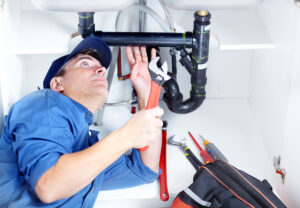
A home plumbing inspection should be done regularly to ensure everything is working correctly, and to catch issues early.
Maintaining a functional plumbing system is essential for any home. Whether you’re buying a new house, scheduling routine maintenance, or experiencing plumbing issues, a professional plumbing inspection can help prevent costly repairs down the line. Understanding what to expect from a plumbing inspection can give you peace of mind and ensure your home’s water systems are in top condition.
Why a Plumbing Inspection is Important
Plumbing inspections help identify potential issues before they escalate into expensive repairs. A thorough inspection can detect leaks, corrosion, water pressure problems, and inefficiencies that may impact your water bill. Additionally, inspections are crucial for ensuring compliance with local building codes, which is especially important when buying or selling a home.
What Does a Plumbing Inspection Include?
A plumbing inspection involves a comprehensive assessment of your home’s plumbing system. Here’s what a professional plumber will typically check:
Water Supply Lines and Pressure
Plumbers inspect your water supply lines for leaks, corrosion, and blockages. They also measure water pressure to ensure it falls within the ideal range (typically between 40-80 psi). Low or high pressure can indicate underlying issues such as pipe obstructions or a faulty pressure regulator.
Drainage and Sewer System
The drainage system is checked for clogs, slow drainage, and leaks. A camera inspection may be used to examine underground sewer lines for cracks, tree root intrusion, or blockages that could lead to backups.
Fixtures and Faucets
A plumber will test all sinks, showers, bathtubs, and toilets to ensure they function properly. Leaky faucets, running toilets, or damaged fixtures can lead to unnecessary water waste and increased bills.
Water Heater Inspection
The water heater is a vital component of your plumbing system. During an inspection, plumbers check for sediment buildup, leaks, thermostat functionality, and proper venting (for gas water heaters) to ensure efficiency and safety.
Pipes and Fittings
Pipes are examined for leaks, rust, and signs of wear. In older homes, plumbers may check for outdated piping materials such as lead or galvanized steel, which could pose health or safety concerns.
Sump Pump and Backup Systems
If your home has a sump pump, it will be inspected for proper operation. A plumber ensures that the pump is free of debris and working efficiently to prevent basement flooding.
What Happens After the Inspection?
Once the inspection is complete, the plumber will provide a detailed report outlining any issues found, along with recommended repairs or upgrades. If necessary, they may suggest preventative maintenance, such as drain cleaning or pipe insulation, to extend the lifespan of your plumbing system.
How Often Should You Schedule a Plumbing Inspection?
For homeowners, it’s recommended to schedule a plumbing inspection at least once a year. However, if you’re purchasing a new home, experiencing recurring plumbing problems, or living in an older house with aging pipes, more frequent inspections may be necessary.
Call Mahon Plumbing Today
If you still have more questions regarding your plumbing, we here at Mahon Plumbing are here to help. We have been serving the wider Baltimore area since 1994, so we have 25 years of experience to back up our fantastic service! Call us at our Baltimore location at 410-766-8566 or our Pasadena location at 410-636-7944. Be sure to keep up with us on social media by following us on Facebook or Twitter.
